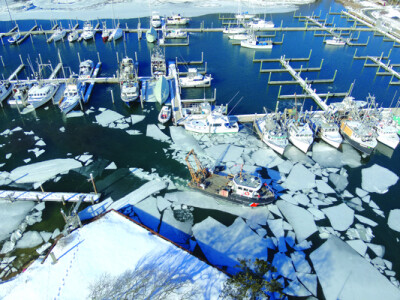There's been a loud, angry and often uninformed debate over salmon habitat protection in the Kenai Borough for the past couple years, and if we hope to protect our fisheries in the coming years, it's important to understand some basic issues.
In 2011, the Kenai Borough Assembly voted 7-2 to protect the vital habitat corridors along our lakes and streams that sustain our wild salmon runs. This vote recognized that all salmon habitat is important, and it extended and expanded earlier ordinances already on the books, to include remaining salmon streams and lakes in the borough.
A small but vocal group of so-called property rights advocates, however, grabbed the salmon habitat ordinance as a symbol of government overreach, and worked others into a frothing frenzy that divided our community and reflected some of the worst of our body politic.
From the start, there was no compromise; property rights were sacred and under no circumstances should government impose restrictions on private property that promote the public good. But these arguments are blind to the rich and well-developed constitutional history of public vs. private property rights in America and in Alaska.
Dating back to ancient Roman law, through the Magna Carta and the U.S. Constitution, up to the Alaska Constitution, private rights have always -- always -- bowed to the public interest. And for a simple reason: we cannot govern ourselves in a reasonable and orderly fashion if the interests of a few trump the rights of the many.
Think about it. If 5,000 individuals act in their own self-interest, can it possibly result in the betterment of the public good? Adam Smith -- the godfather of our modern economic model -- didn't think so. And for good reason: The private interest is not, by definition, the public interest.
Read the full story at the Alaska Dispatch>>






